Podcast: Play in new window | Download (Duration: 31:23 — 21.6MB) | Embed
Subscribe: Apple Podcasts | Spotify | Amazon Music | Android | Pandora | iHeartRadio | JioSaavn | Podchaser | Gaana | Podcast Index | Email | TuneIn | Deezer | Anghami | RSS | More
 Dr. Lilles continues the spiritual explorations of the Letters of St. Elizabeth of the Trinity. In this episode we discuss letter 335. In this special letter, shortly before her death, Elizabeth sends this letter to a friend Sister Marie-Odile. This is a very poignant letter and conversation.
Dr. Lilles continues the spiritual explorations of the Letters of St. Elizabeth of the Trinity. In this episode we discuss letter 335. In this special letter, shortly before her death, Elizabeth sends this letter to a friend Sister Marie-Odile. This is a very poignant letter and conversation.
L 335
To Sister Marie-Odile[October 28, 1906]
Our God is a consuming FireBefore flying away to Heaven, dear little Sister Marie-Odile, I want to send you a little note from my soul, for I am anxious for you to know that in the Father’s House I will pray especially for you. I am keeping a rendez-vous with you in the Furnace of love; my eternity will be spent there, and you can begin it already here on earth. Dear Sister, I will be jealous for the beauty of your soul, for, as you know, my little heart loves you very much, and when one loves, one desires the best for the beloved. I think that in Heaven my mission will be to draw souls by helping them go out of themselves to cling to God by a wholly simple and loving movement, and to keep them in this great silence within that will allow God to communicate Himself to them and transform them into Himself. Dear little sister of my soul, it seems to me I now see everything in God’s light, and if I started my life over again, oh, I would wish not to waste one instant! He does not allow us, His brides in Carmel, to devote ourselves to anything but love, but the divine, and if by chance, in the radiance of His Light, I see you leave that sole occupation, I will come very quickly to call you to order; you would want that, wouldn’t you?
Pray for me, help me prepare for the wedding feast of the Lamb. Death entails a great deal of suffering, and I am counting on you to help me. In return, I will come to help you at your death. My Master urges me on, He speaks to me of nothing but the eternity of love. It is so grave, so serious; I wish to live each moment fully. A Dieu, I don’t have the strength or the permission to write at length, but you know Saint Paul’s words: “Our conversation is in Heaven.” Beloved little sister, let us live by love so we may die of love and glorify the God Who is all Love.
“Laudem gloriae,”
October 28, 1906.
Catez, Elizabeth of the Trinity. The Complete Works of Elizabeth of the Trinity volume 2: Letters from Carmel (pp. 360-361). ICS Publications. Kindle Edition.

Special thanks to Miriam Gutierrez for her readings of St. Elizabeth’s letters
For other episodes in the series visit
The Discerning Hearts “The Letters of St. Elizabeth of the Trinity” with Dr. Anthony Lilles’
Anthony Lilles, S.T.D. is an associate professor and the academic dean of Saint John’s Seminary in Camarillo as well as the academic advisor for Juan Diego House of Priestly Formation for the Archdiocese of Los Angeles. For over twenty years he served the Church in Northern Colorado where he joined and eventually served as dean of the founding faculty of Saint John Vianney Theological Seminary in Denver. Through the years, clergy, seminarians, religious and lay faithful have benefited from his lectures and retreat conferences on the Carmelite Doctors of the Church and the writings of St. Elisabeth of the Trinity.



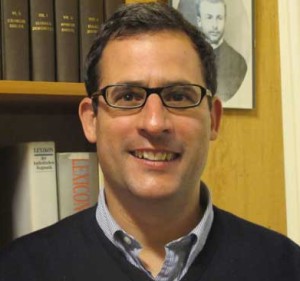 Episode 4 – “A Handmaid of the Lord – Mary/Joseph, Mary/John” – “A Handmaid of the Lord”: The life and legacy of Adrienne von Speyr with Dr. Adrian Walker, Ph.D.
Episode 4 – “A Handmaid of the Lord – Mary/Joseph, Mary/John” – “A Handmaid of the Lord”: The life and legacy of Adrienne von Speyr with Dr. Adrian Walker, Ph.D.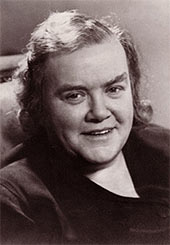 Adrienne von Speyr was a Swiss convert, mystic, wife, medical doctor and author of over 60 books on spirituality and theology. She’s inspired countless souls around the world to deepen their mission of prayer and compassion. She entered the Catholic Church under the direction of the great theologian, Hans Urs von Balthasar. In the years that would follow, they would co-found the secular institute, the Community of St. John.
Adrienne von Speyr was a Swiss convert, mystic, wife, medical doctor and author of over 60 books on spirituality and theology. She’s inspired countless souls around the world to deepen their mission of prayer and compassion. She entered the Catholic Church under the direction of the great theologian, Hans Urs von Balthasar. In the years that would follow, they would co-found the secular institute, the Community of St. John.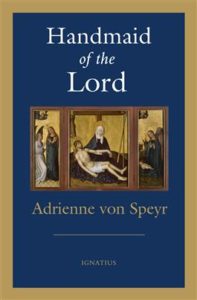
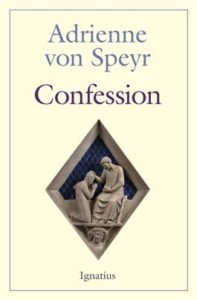



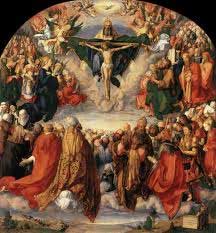
 “O Radiant Dawn,
“O Radiant Dawn,
 Man I Sing
Man I Sing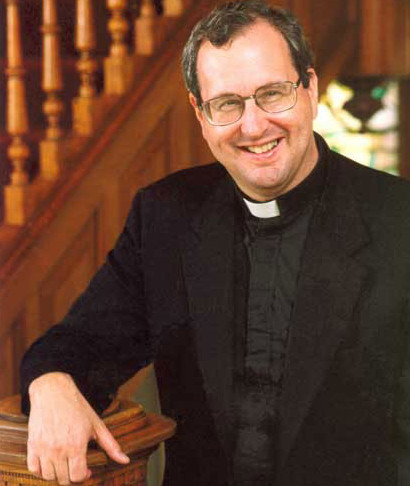 Destiny from the Revelation of Jesus“, which is the third installment of his “Happiness, Suffering, and Transcendence” series. Not only is Fr. Spitzer a brilliant theologian, but he has the heart of caring pastor who understands the needs of the questing minds of so many lost and wandering souls. With an extraordinary grasp of philosophy, theology and cosmology, he is able to take complicated concepts and mix them with joy, beauty, and a grace-filled enthusiasm without doing damage to the subject matter. In this volume, he addresses “What is LOVE”, “Who is LOVE”, and maybe in an even deeper way, “The why of LOVE”. Of course we know, “God is Love”, but God as a Father? God as a Son? God as Holy Spirit? How is the mind to grasp such penetrating Truth? And more importantly, how is the heart to perceive this eternal divine mystery?
Destiny from the Revelation of Jesus“, which is the third installment of his “Happiness, Suffering, and Transcendence” series. Not only is Fr. Spitzer a brilliant theologian, but he has the heart of caring pastor who understands the needs of the questing minds of so many lost and wandering souls. With an extraordinary grasp of philosophy, theology and cosmology, he is able to take complicated concepts and mix them with joy, beauty, and a grace-filled enthusiasm without doing damage to the subject matter. In this volume, he addresses “What is LOVE”, “Who is LOVE”, and maybe in an even deeper way, “The why of LOVE”. Of course we know, “God is Love”, but God as a Father? God as a Son? God as Holy Spirit? How is the mind to grasp such penetrating Truth? And more importantly, how is the heart to perceive this eternal divine mystery?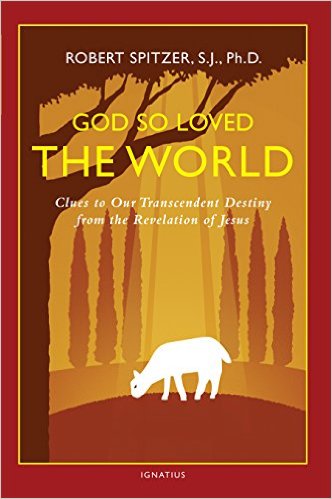
 What an absolutely wonderful book! In “Praying with Mother Teresa: Prayers, Insights, and Wisdom of Saint Teresa of Calcutta” author Susan Conroy takes into the depths of her heart through her tremendous devotion to prayer. Susan is exceptional in sharing the joy of Mother Teresa’s particular charism: “to care for the poorest of the poor”. Who are the “poorest of the poor”? The answer might surprise you. Full disclosure is necessary: I LOVE THIS BOOK! It has become one of my favorite devotional works, and hopefully one of yours too! Susan is inspiring as well, an obvious fruit from this beautiful ministry. Don’t miss!
What an absolutely wonderful book! In “Praying with Mother Teresa: Prayers, Insights, and Wisdom of Saint Teresa of Calcutta” author Susan Conroy takes into the depths of her heart through her tremendous devotion to prayer. Susan is exceptional in sharing the joy of Mother Teresa’s particular charism: “to care for the poorest of the poor”. Who are the “poorest of the poor”? The answer might surprise you. Full disclosure is necessary: I LOVE THIS BOOK! It has become one of my favorite devotional works, and hopefully one of yours too! Susan is inspiring as well, an obvious fruit from this beautiful ministry. Don’t miss!

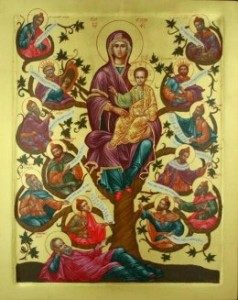 “O Flower of Jesse’s stem,
“O Flower of Jesse’s stem,
